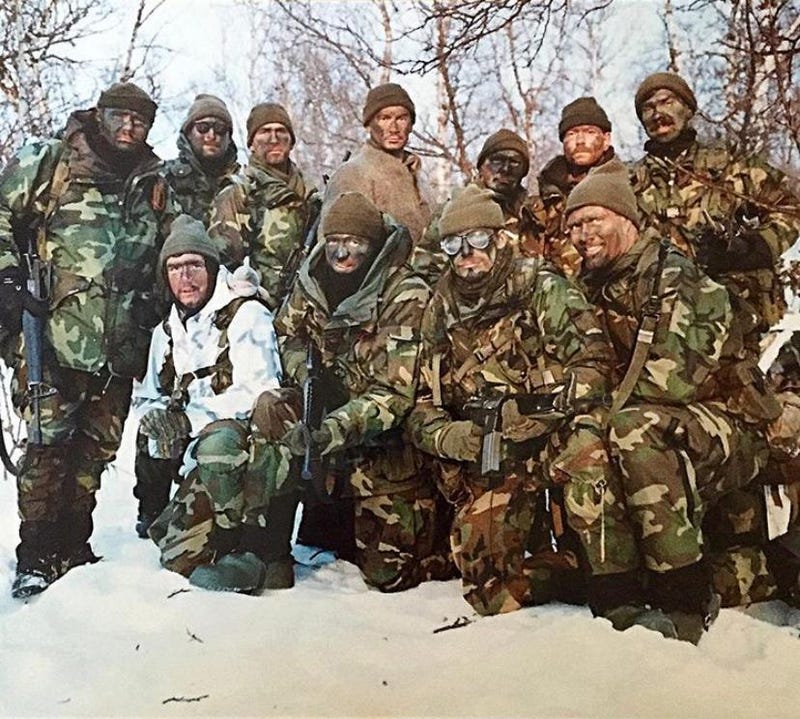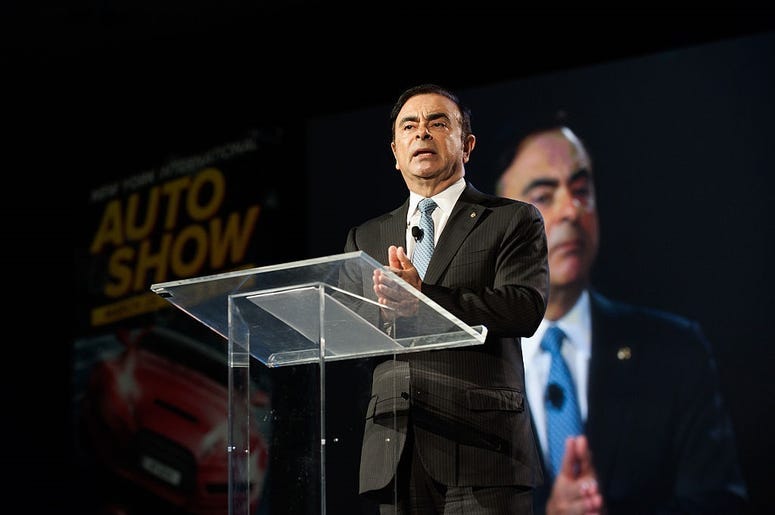
Former Special Forces soldier Mike Taylor, along with his son Peter, are facing extradition to Japan to face allegations that they smuggled Nissan executive Carlos Ghosn out of the country, who was himself facing criminal charges.
Ghosn's escape from Japan made international headlines at the time, as did the daring manner in which it was carried out. It was reported at the time that Taylor used a variety of methods to extract Ghosn, including putting him into a black case normally used for musical equipment with some air holes drilled in it which was then loaded onto a privately chartered aircraft.
As the Taylors sit in federal lockup, the court and the State Department have blessed off on their extradition to Japan. The transition has only been delayed by a last-minute court filing. In an affidavit filed by Taylor's lawyer just yesterday, Carlos Ghosn speaks out for the first time in defense of Taylor and against inhumane treatment in the Japanese courts and prisons.
"I have unfortunately experienced the Japanese law enforcement and judicial system, practices and tactics that confirms the Taylors's fears, from prolonged pre-trial detention, splitting accusations to give the option of filing additional charges and extending pre-trial detention, mental torture, intimidation with the single aim of coercing a confession and/or acknowledgment of guilt, and with no hope of a timely and fair trial," Ghosn writes in the affidavit.
Ghosn says that the Japanese prosecutor kept having him re-arrested so that he could be held indefinitely.
"During that five-month period, I was interrogated constantly, both during the day and at night and without any break for weekends or holidays. I was denied access to counsel and pressed for a confession during these sessions, which lasted up to eight hours," Ghosn claims.

"When I was first arrested they put me in a low heated room of barely seventy-eight square feet with only Japanese-style tatami mats and a futon, and I was not switched to a cell with a bed until I got severely sick. To disorient and discomfort me, the lights were left on at all times, and I was denied access to any time-keeping devices. The room's only window was blurred and recessed so that I could not tell what time of day it was," the former Nissan executive continues, going on to say he was only allowed to shower twice a week.
He was also denied contact with his family for over a year and banned from any contact with his wife as Japanese authorities said she might tamper with evidence.
"Cruel tactics like these are common in Japan and plainly meant to wear an accused down until a guilty plea can be obtained."
A second affidavit filed on behalf of the Taylors comes from an Australian named Scott McIntyre who went to Japan to locate his two children, who he claims were illegally abducted by their mother.
"Despite repeated pleas to the Japanese Police to find my missing children (who remain missing now after 540 days) I was repeatedly told that they would not help foreigners, and they repeatedly used discriminatory language towards me before finally arresting me and jailing me on one single count of trespassing," McIntyre writes. He was incarcerated at Kosuge Detention Centre.
In his affidavit, he highlights aspects of the Japanese justice system which he feels fails to meet basic international standards. These include being held for 72 hours after arrest without any contact with the outside world, being hogtied in a line with other prisoners, being put in a tiny cell with a dozen other prisoners during questioning from the prosecutor, where he was not permitted to stand up, move, talk, and was only provided a ladle of water and two bread rolls at lunch.
"The most horrific of all treatment is that there is a 24-hour light in detention, half the lights in the room are 'dimmed' but are never turned off at any point and it is impossible to sleep for more than an hour or two at a time which as a result leaves you constantly physically and mentally exhausted," he writes.
"This system and Japan's refusal to acknowledge the human rights abuses they perpetrate is a shameful practice that the international community should condemn and is not a place that any foreigner should ever be detained in, from nations where such fundamental abuses of human rights are not permissible in our own nations," he concludes.
The U.S. State Department's own document on human rights in Japan highlights some of these issues and points out that prisoners are left to freeze due to inadequate heating and cooling in the prisons. "Foreign prisoners in the Tokyo area continued to present chilblains-affected fingers and toes of varying severity resulting from long-term exposure to cold," the report states.
It goes on to lay out why Japan has a stunningly high conviction rate saying, "NGOs and legal experts stated bail was very difficult to obtain without a confession and that communications were restricted for detainees who would not confess. As a result, many detainees eventually confessed to qualify for bail. The Justice Ministry stated that in 2017, 99.96 percent of criminal cases ended in convictions; in most cases, the suspect had confessed."
Amnesty International has also filed report after report on abuse in Japanese prisons.
Since the State Department is the final deciding authority on whether the United States will extradite citizens to foreign countries, the Taylors are hoping that Secretary Pompeo will reverse the department's decision after considering the affidavits filed.
